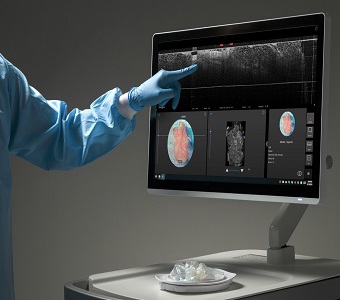The shortcomings of Alzheimer’s research stems from a fundamental belief that removing amyloid is the treatment approach. The research community has been led astray by this same belief. It’s time to try something different. We interviewed Dr. George Perry to get his opinion on what needs to change in order to finally see some progress in treating Alzheimer’s.
PropThink: We have Dr. George Perry as a special guest to share his insights on the current state of Alzheimer’s and the next wave of research strategies. Dr. Perry is a Professor at the University of Texas at San Antonio and one of the leading Alzheimer’s experts cited in research papers. He is also editor-in-chief for the Journal of Alzheimer's Disease. Thank you for joining us, Dr. Perry.
Dr. Perry: Thanks for having me.
PropThink: For the better part of three decades, Alzheimer’s research and drug development focused on the amyloid thesis. The idea being that targeting amyloid, a protein that is thought to be a hallmark of Alzheimer’s disease, will improve cognitive decline. Time after time drug developers struck out, even though in some cases, amyloid was removed. What are your thoughts on these repeated failures and the amyloid thesis in general?
Dr. Perry: The reason I think amyloid has failed is because even though genetic evidence shows very conclusively that amyloid is a critical part of progression of Alzheimer’s, it does not show it is a causative element. Rather, amyloid is an associated element.
This distinction between causation versus strong association in pathway will not be resolved by genetics. It will be resolved by the type of studies done clinically. In several studies, amyloid has been removed, but patients have not gotten significantly better. This indicates that Alzheimer’s disease initiates from another pathway. Simply removing amyloid has not improved symptoms.
Amyloid is a critical response to the underlying problem of Alzheimer’s disease, which is likely to be metabolic oxidative stress. This can be comparable to inflammation. You have an injury or trauma, and the body responds to it by being inflamed. That inflammation can cause problems, but it is also necessary for repair response. We need to be looking at amyloid in a similar light. Removing it can actually make people worse.
PropThink: In the next couple of months, Biogen will submit their amyloid drug aducanumab to the FDA for potential commercialization. Do you see this changing the industry strategies in any way?
Dr. Perry: Unfortunately, no. If aducanumab is approved, I think it will mean another decade of a quagmire of people focusing on improving amyloid related therapeutics with the same simplistic view. That is that amyloid is damaging and efforts to remove it will improve patients. I don’t think we need to have another decade of failures.
In selected early Alzheimer’s Disease patients, Biogen’s results have at most only shown a slight delay of disease progression, not improvement. Furthermore, when considering that aducanumab has to be delivered by infusion, it’s tremendously expensive, and the marginal results, you have a candidate that isn’t really clinically meaningful in the fight against Alzheimer’s.
My biggest concern if aducanumab is approved is the new life such a potential approval will inject into amyloid thesis. Researchers will not be focused on what amyloid is actually doing, but rather finding new ways to remove amyloid. That has not served us well in the last 30 years.
PropThink: Can aducanumab approval open a door to combination therapy, which some in the research community think is the way forward?
Dr. Perry: Depends on which combination therapies. If you mean combining amyloid and tau, then probably not. Tau thesis is similar to the amyloid thesis: that tau, a single protein is part of the problematic response to the disease. I don’t think the solution is as simple as removing one protein, the other or both, will treat the disease. It’s too simplistic of a view. With that said, there have not been enough studies in tau. Many are ongoing so we should have a much better understanding in the near future. So far, none have had a benefit. This could change.
Now, if you are modulating amyloid, tau, metabolism, among other pathways, there could be promising combination therapies. However, there is not much interest in funding a diverse set of approaches that hit multiple pathways.
PropThink: The next wave of approaches includes neuroinflammation for treating AD and other neuro-degenerative diseases. There is research underway studying the possibility of repressing inflammatory response by neutralizing inflammatory cytokines. What are your thoughts on the neuroinflammation approach?
Dr. Perry: I can’t say that I am enough of an expert in neuroinflammation to know the aspect intimately. My understanding is that neuroinflammation is part of the brain’s response to repairing itself. Therefore, neutralizing inflammation may be causing the same problem as removing the amyloid. We would be removing a critical element in evolution that, at certain levels, has a positive effect. We need to really understand when the changes are reparative and when are they not. You have to understand how it fits into biology before removing. I do believe that the inflammatory pathway should be studied further, however.
PropThink: Your own research has focused on whether there is a metabolic element to Alzheimer’s. Can you talk a little bit about your findings?
Dr. Perry: Data has shown that lifestyle and diet influence Alzheimer’s. This is a clear indicator that metabolism is a key part of disease. Our metabolic research has focused on mitochondrial changes. Mitochondria is the site within cells where most food is eventually metabolized. During Alzheimer’s Disease we have seen mitochondria changes both in animal models and human tissue. The mitochondria become larger, which impacts ability to be transported as well. We think this change in mitochondria is caused by altered proteins that regulate the mitochondria.
PropThink: How does amyloid fit into this metabolic thesis?
Dr. Perry: To understand amyloid’s role, we have to first look at what happens in the cell environment. Mitochondria are full of iron and copper that catalyze metabolism and energy creation. When mitochondria are disturbed, as they are in Alzheimer’s Disease, metal elements copper & iron are released into the cell environment. This creates a toxicity within the cell that impacts metabolism.
Mitochondria also contain amyloid protein that plays a major role in dealing with copper and iron. Our studies have shown that amyloid keeps copper and iron from becoming toxic within the cell and thereby effecting metabolism.
This is why I am not a believer that amyloid removal is the right path to take. Instead, we need to understand what amyloid is doing. We know that in Alzheimer’s Disease, the metals discussed are released. Amyloid acts as a scavenger to these metals by binding to them. This gives amyloid antioxidant features.
PropThink: What should next wave of therapies focus on then?
Dr. Perry: Biology of the brain and neurons. I believe the next wave of research needs to change the emphasis on interpreting the same observations. We know some people live to 100 and have normal cognition. If you study the brains of these people, you see they’re full of amyloid. Clearly, just removing amyloid is not the solution. We need to understand the biology of neurons. For example, how do neurons of some people manage normal cognition even in old age and in presence of amyloid plaques?
Additionally, some parts of the disease have not been well defined in the most objective standards. Alzheimer’s disease, in my opinion, is still poorly described with certain elements having faint or incorrect descriptions. This makes it hard to address other areas of disease or treatments. Genetics, protein chemistry, structural studies are just a few of the areas that need further research. We need a better understanding of the disease before we can develop the next effective therapy.
PropThink: Precision medicine is being discussed quite a bit in Alzheimer’s as a diagnostic tool to make studies more efficient through use of biomarkers. How do you see precision medicine playing a role in Alzheimer’s Disease?
Dr. Perry: Precision medicine is going to be an important tool that can help us better understand the disease, the different phenotypes, and define the risk features of developing Alzheimer’s. Today, very few genetic markers give clear diagnostics, so we are preliminary in the usefulness of these tools. Most useful biomarkers today are not coming from cerebral spinal fluid or blood markers. They are from genetic tests that can be ordered online simply from places like 23andMe. Even with these biomarkers, how much utility can they bring with no effective treatment? I think we’re a long way from using precision medicine to treat Alzheimer’s.
PropThink: How far out do you think we are from finding an effective treatment to Alzheimer’s?
Dr. Perry: Quite far, actually. Primarily because the industry as a whole has been fixated on only one approach; the amyloid thesis. I hope that the FDA decision regarding Biogen marks a change in how open we are to new ideas going forward. This includes further study of amyloid, by the way. Just not in the centric causative element that it has been studied to date. Rather, study amyloid as an obligate associated element of Alzheimer’s.
The description of Alzheimer’s is not conclusive because it was made a long time ago. We have conclusions about the disease from about 30 years ago, but methods have progressed since then. We are using different insights and modern tools, but the description of Alzheimer’s Disease has not changed because the new approaches to address fundamental questions are not pursued. I think this has misled the field because no one is questioning findings, even though conclusions from the past may not be completely correct. This is why I believe we have a lot of fundamental work to do before finding an effective treatment.
PropThink: Thanks very much for your time Dr. Perry. We appreciate sharing your insights.
Access This Content Now
Sign Up Now!




